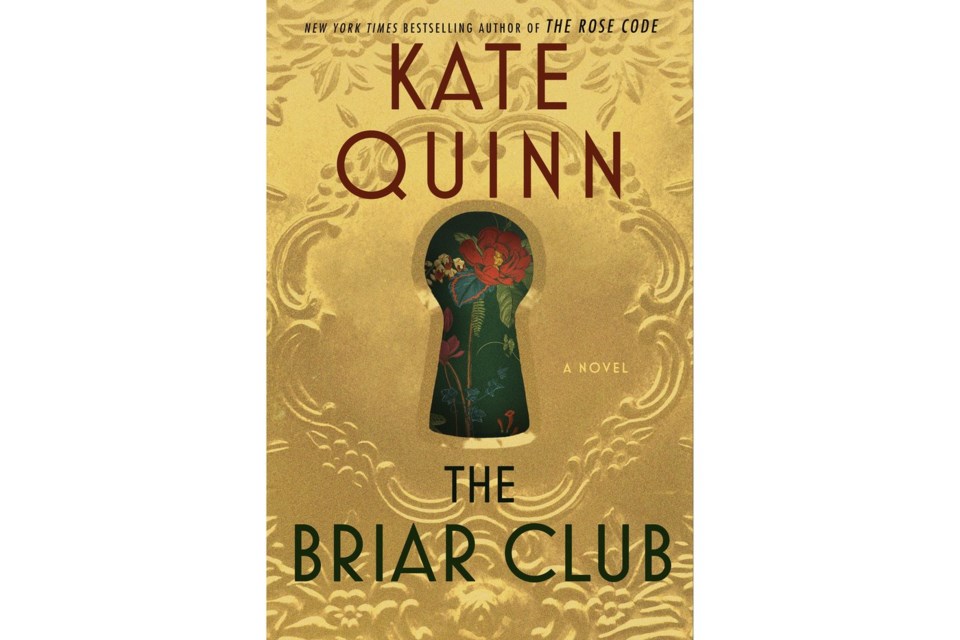If you’ve never read a Kate Quinn novel, there’s no time like the present. Or like the 1950s in Washington, D.C. That’s the setting for Quinn’s “The Briar Club,” which is a murder mystery wrapped up in the stories of multiple women who rent rooms at a boarding house during the height of Sen. Joseph McCarthy’s Red Scare.
The characters are all interesting, but too numerous to sketch in this short review. Each gives Quinn an opportunity to comment on some aspect of the decade — from the development of the birth control pill, to organized crime corrupting the D.C. police force, to the demise of a professional women’s softball league after World War II. All the women’s stories serve the novel’s greater plot, which opens with a murder in the house on Thanksgiving Day in 1954. It then flips backward and forward in time, crashing the characters together and creating plenty of suspects before ending with a delightful twist.
At the center of the plot is Grace March, who moves into the third-floor attic of the Briarwood boarding house and, over the objections of the stern landlady, Mrs. Nilsson, begins to make the place a real home. She paints flowers and vines on her ceiling that eventually creep down the staircase and are a metaphor for the role Grace plays in the boarder’s lives. She starts a Thursday night Supper Club, inviting everyone to bring a dish to warm up on her hot plate and share.
Quinn tosses in a couple cute wrinkles that make the book even more fun. One is the inclusion of actual recipes for the dishes and drinks the women bring to supper club. In promotional interviews in advance of the novel’s release, Quinn admitted that her husband actually prepared all the food and drink for her to taste prior to publication. Also unique to the novel — short chapters written from the point of view of the house itself. As a detective moves to split up the the women for interrogation following the Thanksgiving day murder, Quinn writes: “He moves into the kitchen, at once the object of all eyes, and just to be spiteful the house rucks the edge of the carpet so he trips.”
It all makes for a delightful read. Quinn creates characters readers will care about and root for, while also managing to keep them guessing until the very end about who murdered whom in Briarwood House.
___
AP book reviews: https://apnews.com/hub/book-reviews
Rob Merrill, The Associated Press



